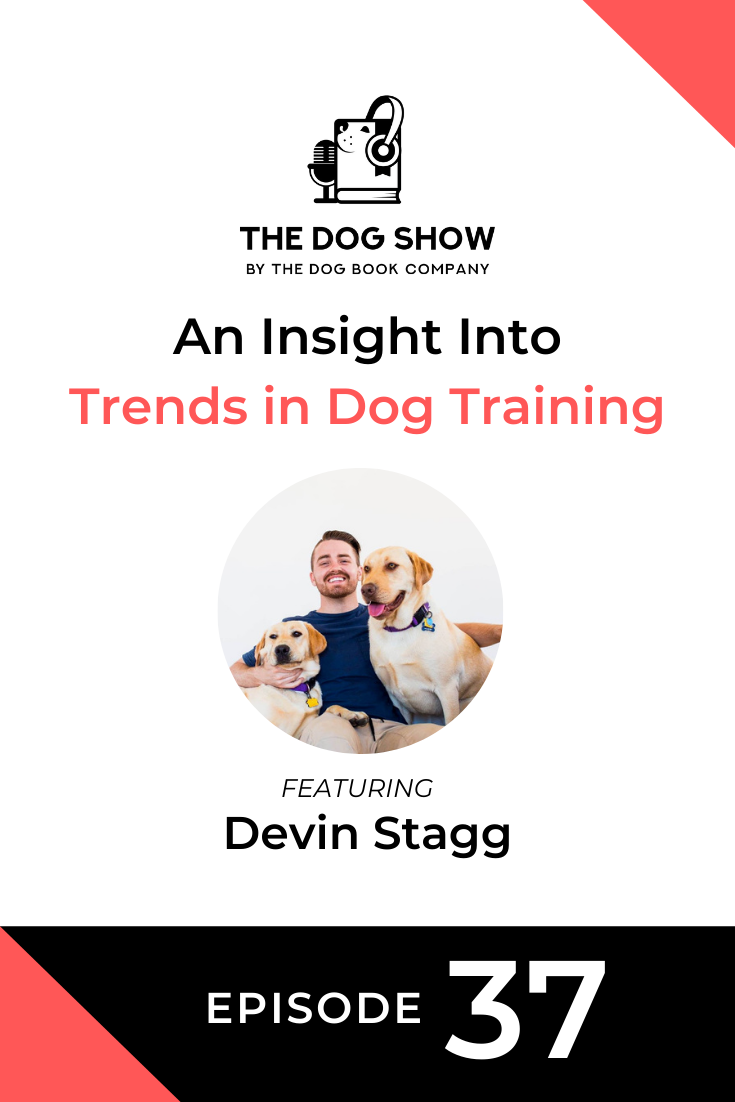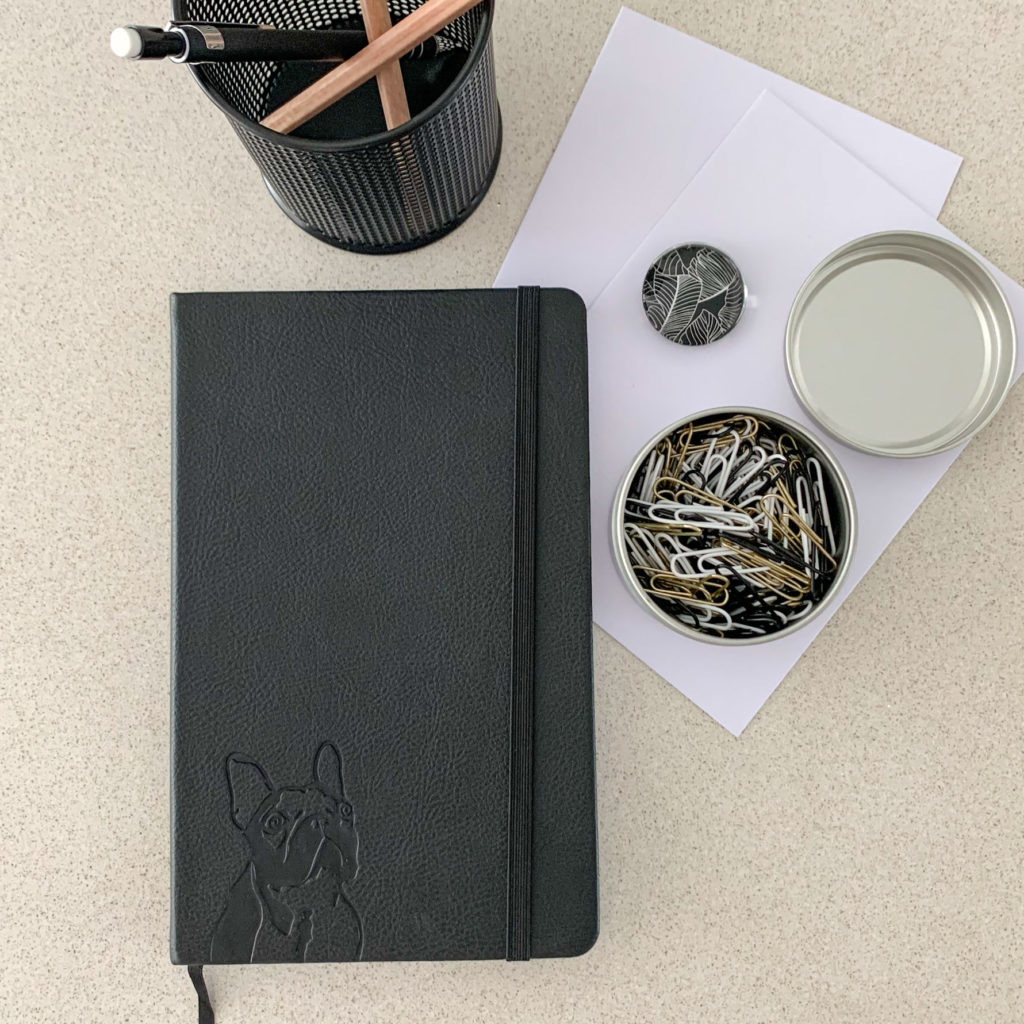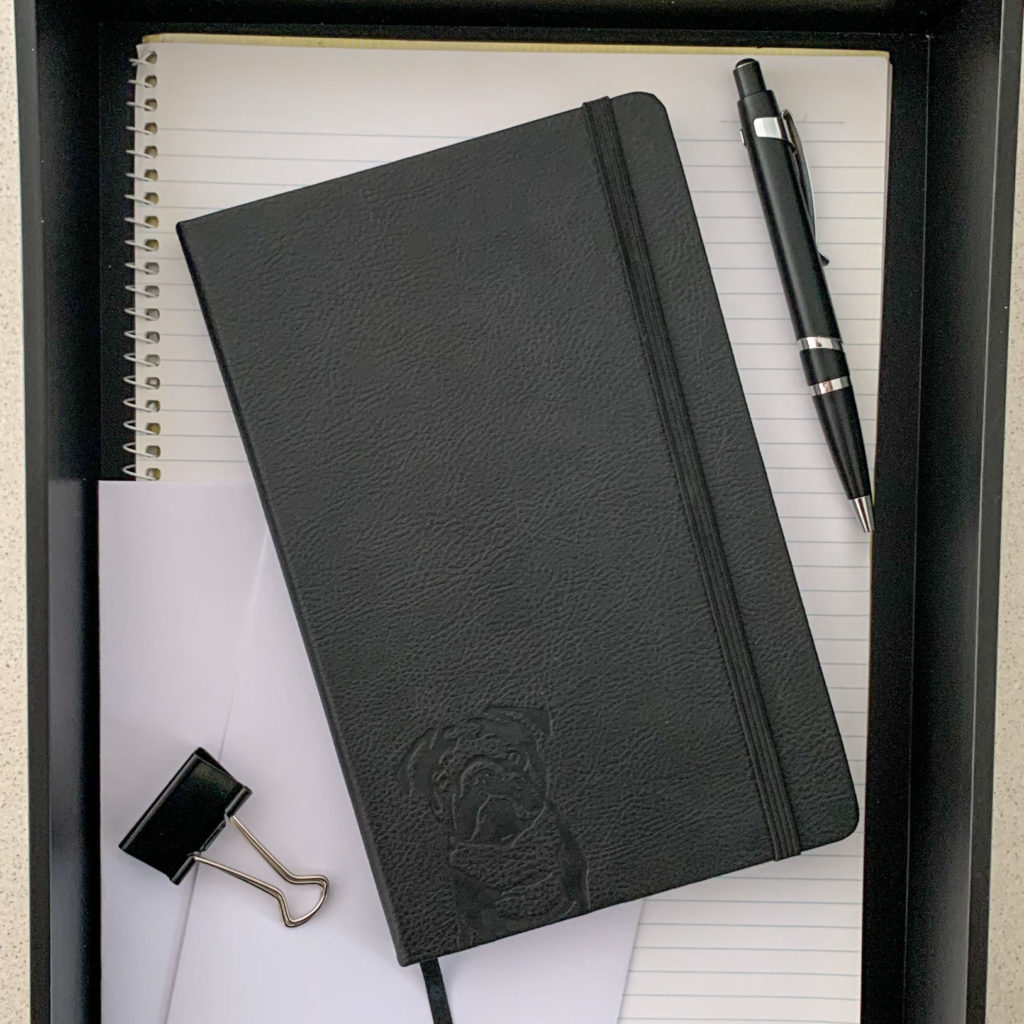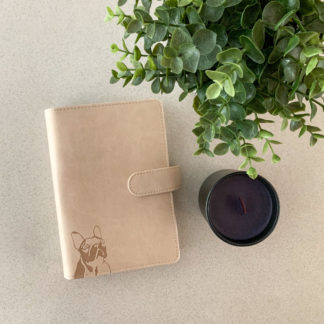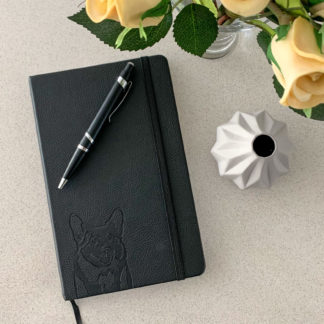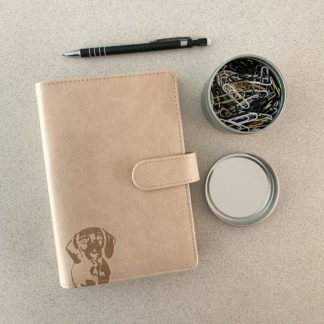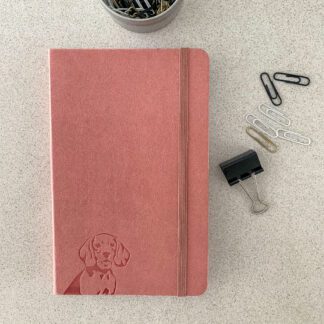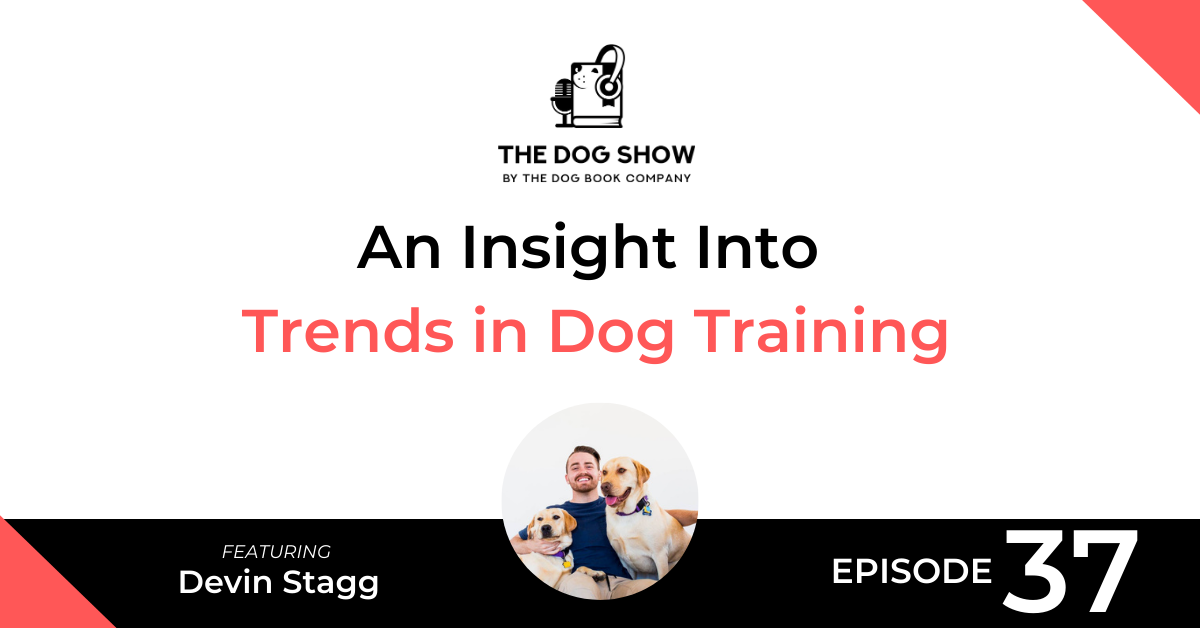
This episode of The Dog Show features Devin Stagg. Devin is the Marketing Manager at Pupford, a company that has helped over 300,000 pup parents overcome their dog’s behavioral problems and raise a happy, healthy, and well-behaved pup with their training resources and products.
In the interview, we discuss the growing trends in dog training, including virtual learning and a shift in the way people want to treat their dogs.
Find out more about Pupford here:
Listen
Watch
Read
Will: This episode of “The Dog Show” features Devin Stagg. Devin is the marketing manager at Pupford, a company that has helped over 300,000 pup parents overcome their dog’s behavioral problems and raise a happy, healthy, and well-behaved pup with their training and products. In the interview, we discuss the growing trends in dog training, including virtual learning and a shift in the way people want to treat their dogs. Devin, welcome to “The Dog Show” today. Thanks very much for coming on.
Devin: Thank you so much for having me. I’m really excited to be on.
Will: Yeah. It’s going to be a fun day I think. We’re going to be talking about trends in dog training because you’ve got a lot of experience working for Pupford which is a leading kind of online training platform for puppy owners, but we can talk a little bit more about that in a moment.
I can see them in the background if anyone is watching on YouTube, but you’ve got three dogs of your own. So, do you want to tell me a bit more about those dogs and why you’ve ended up with three dogs as an adult?
Devin: I come out right upfront with people and I say, “I know I’m kind of that crazy dog person.” My wife and I talk about it all the time. We’ve just owned it. We’re the crazy dog people in the neighborhood and that’s okay. So, you know, I didn’t have any dogs growing up. You know, I used to dog sit a little bit, but when my wife and I bought our first home, you know, this old guy right here, his name is Buddy, that’s her dog from since she was basically a kid and we wanted to bring him into our house and have him live with us in the last part of his life.
And he has always had other dogs in the household, and so kind of he was bored and we’re like, “Okay, he needs a friend. He needs a puppy.” And so we got our first Labrador puppy and we had her for a few months with Buddy. And Buddy is older. He’s almost 15 now, but, like, even a few years ago, he was kind of slowing down, and so he couldn’t keep up with the puppy and we’re like, “Well, now our puppy needs a puppy.”
So, lo and behold, we got a third dog and it’s crazy. Like, it has its moments where, you know, it’s a little bit chaotic and, you know, trying to do things like going in the car. You know, the logistics can be a challenge, but it’s been super, super fun to just kind of go dive headfirst into, like, the dog world and have three dogs. I love it. I wouldn’t change it for anything.
Will: Yeah. It’s interesting that dynamic of having the extra dogs when you need to actually do things, right? I was chatting to someone yesterday on the show and I was talking about how I like to get the stimulation of taking my dog out for a walk every day because it’s fresh air, and it’s relaxing, and it kind of refocuses my mind. And they were talking about, yes, they have the same experience, but they had four dogs and they were saying it’s quite a big effort to take them out.
Devin: Yeah. It makes you make some lifestyle changes. Just like, you know, I go running with my two Labradors. And, you know, I originally tried just doing it with a hand leash that kind of split on the end, and I’ve worked my way up now where I have, like, a hands-free, goes around my waist and, you know, you figure it out, you adapt, but yeah, it has its moments of challenges, that’s for sure.
Will: How long did the labs last on a run, or did they outlast you?
Devin: They outlast me. And what’s awesome is they push me to be faster. I’m not like…I’m a decently fast runner. I’ve done a couple of half marathons and I’ve found that if I go, like, any slower than about an eight-minute per mile pace, my dogs kind of…they start pulling me and they’re like, “Hey, we don’t want to be slowing down,” and so it’s forced me to be faster. So, yeah, they’re fast and they’ll go. I actually took them on…I think the longest I’ve done with them is 12 miles, and we got home after 12 miles and they were wrestling in the living room like they were unfazed. So, I mean, that’s the nature of Labradors, I guess, right?
Will: Yeah. So, safe to say my French Bulldog wouldn’t last 12 miles but should…yeah, like, surprisingly very fast, though. I couldn’t keep up with her in a running race, but I think I’d probably outlast her in a marathon.
Devin: Yeah. Those short stout dogs, I get it. So, Buddy, the older one up here, he’s a Puggle. So, he’s a Pug and Beagle mix. And so, he’s got the short snout and breathing issues of a Pug and it’s…yeah. I mean, I know you brought it up briefly that your dog has some health challenges. I don’t know if it’s related to that, but yeah, those shorter snout breeds. Yeah. He’s all about short bursts, little sprints, and then he’s like, “Okay, I’ll go take a nap now.”
Will: Yeah. Interesting. Because I’m just looking at the photo at the moment and it’s quite a big, old-looking dog actually when I look at it, but it’s interesting that it’s kind of got the bad health traits of the Pug. Probably not ideal.
Devin: Well, on top of that, you can kind of see it, his tongue is sticking out here because he has the Beagle tongue with the Pug short snout. And so, I’m not exaggerating. Probably 90% of the time his tongue is at least sticking out like a quarter-inch, and sometimes he’ll fall asleep on the couch and he’ll wake up and, you know, it’s sandpaper and his tongue has been laying on the couch for two hours. But he’s a funny dog.
Will: Well, the Beagle tongue was meant to be inside a longer mouth, right?
Devin: Exactly.
Will: Did you ever get surgery or look into surgery to help correct the breathing issues?
Devin: His hasn’t been as extreme as I know some other shorter snout breeds have it with the breathing issues. His is more apparent in his older age just as his lungs are kind of deteriorating, for lack of a better word. So, we never had to go that extreme. Is your dog facing that? Like, have you had to do surgeries for the breathing issues?
Will: We did a surgery when she was younger based on the recommendation of our vet. So, every time we would go for a walk, she’d kind of generate a lot of froth kind of stuff coming out of her nose. I’m not using the right word. I’m sure there’s a better word for that. And so, she would really kind of struggle even on a short walk or anything like that because they have the flat face, the extended soft palate, the French Bulldogs I’m talking about, and the close nasal passages. They did a soft palate surgery, which kind of trims back the soft palate a little bit to open up the airways, and then they also extended the space within the nasal passages, and it helped dramatically, and she’s much better now. Sometimes they say it might revert back a little bit, but it was definitely worthwhile for us, but that’s not always the case.
Devin: Yeah. That’s good. And it’s funny because there’s a lot of challenges in the world right now, but, like, we live in a great time in regards to, like, there are surgeries like that where you can get those things taken care of, make them better, give your dog a better life experience, I guess, right?
Will: Yeah, exactly. So now we can go for, like, you know, hour walks and stuff and she’s fine if it’s not too hot. But, you know, previously, we were going, like, 15-minute walk and we’d have to pick her up. So, yeah, it’s dramatically better, yeah. So, how did you end up working at Pupford? What led you there?
Devin: Yeah. It’s a good question. So, the kind of original founders of Pupford were a couple of my managers at our previous company who I had worked with really closely. You know, Mike, he’s kind of the main head guy here at Pupford. He was my direct report at a previous company. When he left to go start Pupford, I kind of went to a different company for a little bit. We kept in touch. You know, he was a boss, I guess, but we were, you know, friends as well. And, you know, he was kind of just doing a lot of the research and development and making those things happen and we just stayed in touch. And I think both him and I have, like, a really strong passion for both marketing and dogs, and so it kind of just led perfectly for me to end up at Pupford.
I started out my marketing life at an agency, and I learned a lot, but it was a challenge and I guess I always was feeling like a little bit…I was longing for something more. I wanted to work in-house, right? And I think, you know, it’s more fun, it’s more enjoyable to really, like, dive deep into an industry and just learn as much as you can about it, and I think it was perfect timing as well because…I’m trying to think exact timelines, but roughly when I started at Pupford was right a few months after we got our third dog, and so I was like, “My life is dogs now.” This is the perfect career. You know, this is the perfect place to be working, because, you know, I was starting to, like, build a real passion for dogs, and trying to understand them, and trying to live with them and, you know, create a good environment for them. And it was just a perfect fit to end up at Pupford.
Will: Well, I’m glad that you’ve seen the light too. I’ve dipped my toe into agency life in a former life. Yeah, it wasn’t for me. The dog life is much more enjoyable and fulfilling, I think.
Devin: Yeah. And, I mean, you know, because I think we all have moments, like, whatever our job is, whatever our day-to-day is where you have days where you’re like, “Man, I don’t know if I love this. Like, I’m tired,” or X, Y, and Z different thing. And when you have something that you’re, like, passionate about and you can tie it back to like, “Okay, this is important. Like, I enjoy dogs.” You’re helping dogs. Like, you’re helping people have a better relationship with their dog. Like, it gives you meaning. And I think, yeah, the agency life, like you said, a former life, that’s a whole nother topic, but yeah, it’s fun. It’s fun to work with dogs. It really, really is. I feel lucky every day. I know that’s kind of cliche, right? But I really do feel lucky to work in the dog space, and I’m sure you can relate to that.
Will: Well, absolutely. And many of the people I speak to on the show, they talk about that, that they’ve had a former job or something where, as you mentioned, they’re having a lot of days where they’re not feeling fulfilled or not enjoying themselves. And, like, a lot of people just assume that’s work, but once you kind of get into the dog space, it’s like it’s this whole new world. I mean, don’t get me wrong. There’s still days where you feel like you probably don’t want to get up and do it, but there’s, you know, a lot more days where it’s really a lot of fun and enjoyable.
Devin: Yeah. And I think, like, it’s nice to… In our situation here at Pupford, we have the capability to bring our dogs in from time to time, and sometimes I’ll bring usually Buddy in because he just likes to sleep. But, you know, I’ll bring him in and you have those moments where, like, you’re frustrated, something goes wrong, and it’s like, “What is the point of this?” And then you, like, look down and you just pet a dog, and you’re like, “That’s what this is all about.” Like, dogs are amazing creatures, and yeah, we’re lucky, like, you and I both. Like, we are lucky to be in the dog space.
Will: Yeah. Definitely. If you’re ever really frustrated at work or you can’t focus, you can’t get anything done, take your dog for a five-minute walk outside and you’ll come back in and you’ll feel rejuvenated and ready to go. That’s my experience anyway.
Devin: Agreed 100%.
Will: So, I’m interested to hear a bit more about, you know, the dog training industry because, you know, traditionally, it’s been quite a disparate industry with lots of decent dog trainers all over the world, right? With, I guess, the social media world that’s taken over and the digital access that people have from all over the world to training modules and things like that, it’s changed a lot over the last decade, but you’ve got a unique vantage point because Pupford have a huge range of courses available for people. Are you seeing any trends at the moment in that space which are interesting?
Devin: Yeah. Like, when I was kind of preparing for this, there were so many things that came to mind, but I think the biggest one that stood out to me is just been the way people want to treat their dogs. And a lot of that goes back to, you know, even 15, 20 years ago, at least here in the United States, like, most people’s dogs probably were just in the backyard, and go out, and give them some food.
But nowadays, like, dogs live in our home. Sometimes they sleep in our bed. You know, they go on vacations with us. You know, for a lot of people, we kind of have changed our lifestyle to fit more in with our dogs, and I think a part of that, that feeling of, like, dogs are family, dogs are more than just an animal in our backyard is we want to treat them humanely.
And, you know, in the dog training world, like you said, it’s kind of this vast landscape of you have trainers on all sides of the spectrum on how they train or methods that they go about, but I think generally what I’m seeing, especially from the kind of younger-ish, I don’t know, however you want to call the age generation, but the people who are having dogs right now or maybe having dogs instead of kids or both, that millennial, whatever you want to call it, they want to use humane methods because they love their dogs and they treat them like family.
And I think there’s a lot more kind of empathy that’s coming into the dog world and how we interact with our dogs, and that’s spilling over into dog training where, you know, in the past, you had methods that… Again, there are so many different ideas and ideologies around dog training but, you know, in my personal opinion, you had a lot of methods that were a little bit inhumane, and probably didn’t put the dog first, and I don’t think really did a great job of, like, connecting with their dog and relying on communication. And I think those are starting to kind of phase away. As we as pup parents look at our dogs more as family, we want to treat them more kindly and more humanely. That’s probably the biggest overarching trend that I’ve seen.
Will: Yeah. And how do you find that plays out in terms of the information or training things that people are looking for?
Devin: Yeah. I mean, you can go and look at just even like Google Search trends and see, like, you know, the words of positive reinforcement training or force-free training that people are wanting. You know, they’ll go and they’ll look right away and they want to know what methods you’re using, you know? You go to most trainers’ Instagram profiles, and right away, you’ll see, are they positive reinforcement-based? Do they use X, Y, or Z tool? Like, they’re very upfront about it because pup parents, they want to know right away, like, what type of methods they’re going to be getting involved in and they want to make sure those methods line up with their belief system.
Will: Do you notice that there’s any type of dog breeds more so than others that are looking for this type of training? I’m just thinking on the runabout. There’s obviously stereotypes around every type of dog breed, right? But I wonder if it’s those ones that you mentioned that are more kind of part of the family, living in the house, all of that kind of stuff, which are typically less active or smaller dogs, right, than maybe the ones that are out on the farm or something like that and they’re just running all the time and everything like that.
Devin: Yeah. That’s a good question. And I think generally, it probably applies across all breeds, but I definitely think that just going along with, like, kind of the breeds that are springing up and being more popular like the French Bulldog or the Mini Goldendoodle. I feel like that’s… You know, we’re a free class and we have asked the class members to take a survey. And so we get information on breed, and a lot of it kind of just goes in line with what the most popular breeds are, but I think, yeah, a lot of those, the doodles, you know, those are the biggest at least in the states again.
I feel like every… You know, you scroll through your Instagram for 10 posts and you’re going to see five of them are just, you know, a Goldendoodle or a Labradoodle or something doodle. So, I think, you know, you see a lot of that, but I think generally, it spans across most breeds. You know, you talked about stereotypes and working dog stereotypes too like the German Shepherd dogs or Collies and Shepherds that are the high energy and are often more kind of in line with, like, working dogs. I think, like, even those breeds, a lot of people are turning to more humane methods and going for that kind of force-free approach even with higher energy dogs.
Will: Random thought. This is going to sound a bit controversial probably, but whoever kind of started that trend of just breeding doodles with every other breed to make them better is like the best marketing tactic of all time.
Devin: It’s funny you say that. I saw an article at one point, and basically, the headline was the guy who created doodles originally had done it to use sense, and he basically said, paraphrasing, “I created a monster.” Like, you know, he originally sought out to… He worked with service dogs and he had a lot of people who… You know, Labradors have been service dogs for a long time, and they have the temperament and that type of thing, but he found, you know, they shed, and so if someone who needs a service dog is also allergic to dogs, what are you going to do? And so, his thought was, “Okay, let’s get Poodles mixed in,” and next thing you know, here we are with… Yeah. It seems like thousands of different doodle breeds out there.
Will: There seem to be a lot. Funnily enough, I hear that, and I don’t know this 100% sure, but having spoken to groomers and different things, funnily enough, not all the doodle mixes, even all the Labradoodles, they’re not necessarily…they still shed or some of them still shed.
Devin: Yeah. I think the term hypoallergenic is a little bit of, like you said, a marketing scheme because every dog has dander. Every dog is going to shed a little bit. So, like you said, though, I mean, it’s quite the marketing ploy that all the doodle integrations have [inaudible 00:18:06].
Will: Yeah. I’m not sure if it was a ploy, but it’s worked out. It’s worked out that way. And I might be making my own assumption here, but there’s probably dog owners out there that assume kind of having an in-person training experience with someone is going to help their dog learn behaviors better than maybe a virtual experience like Pupford offers. What do you do at Pupford to kind of bridge that gap and help people, you know, one, feel comfortable with that environment but also get the same results as you would as an in-person training?
Devin: Yeah. I think that’s kind of a great question and a great point of just like what’s happening nowadays. For us at Pupford, we know that we’ll never and we don’t even want to replace in-person training because I think, at the end of the day, there is always some instances where, you know, depending on it’s maybe the dog’s background, or maybe it’s just the humans. Maybe they’re not comfortable enough with training or whatever it might be where you just need the help of that in-person trainer, you know, just like with, like, fitness, right? Like, there are still personal trainers and there are always will be, although there are now thousands of apps where you can get workout routines.
And I think, you know, we’re starting to see that trend here at Pupford and generally with dogs and that, you know, we want to be a supplementation to those things. And, in some instances, it can be the solution, you know, especially if kind of you have some dog background and you’re somewhat familiar with training. I think a lot of it is just people need a concise way to consume the information, and that’s kind of what we’ve been trying to accomplish where it’s like, “Yeah, you can go to a puppy class. You might not get a whole lot of focus anyways.” And so, I think a lot of people just opt for, like, the accessibility of it, and that’s what people like, and that’s what people, you know, are finding, “Hey, I’m a DIY-er. I can do this. Like, just tell me what I need to do. I’ll accomplish it.”
And I think a lot of people have found that when you combine both, like, the information, right? So, like the modules and, “Hey, this is what you should do, X, Y, and Z,” but then when you combine that with, like, a support community where you can go and ask questions on the specifics, that’s where I think you kind of can bridge the two models. And then, of course, again, you’re going to have people who just always need an in-person trainer, but that’s what we’ve done with our free course that we offer is we offer a Facebook community where people can go in and ask their questions. And, you know, they can say sometimes the most specific things you’ve ever thought of like, “My dog only does X behavior when it’s snowing outside and it’s a Tuesday and people will be like, ‘Oh, that’s how my dog was. This is what we did.’ ” And so, I think, like, with the virtual stuff, adding the community aspect is where people can feel like, “I can be successful with this.”
Will: Yeah. That makes a lot of sense. I guess if you hear someone that’s had a similar experience, you feel confident that if they’ve overcome that, then they can share tips and tricks that might help you as well. One thing I was just thinking of as you were talking where I’ve struggled in the past with teaching new behaviors to my dog is that discipline of just repeating it over and over again. So, even if you have a dog trainer come and, you know, teach you what you need to do, the owner still needs to follow through with the actual actions daily to get it done. So, is there anything that you provide through the app that kind of helps people with that reminder to, like, keep that discipline?
Devin: Yeah. In kind of our flagship course, it’s called 30 Day Perfect Pup. We partnered with Zak George. The way that we’ve set that up is that you’re actually getting daily email reminders, and the daily emails, I think the main purpose, like you said, it’s just to help you stay on track because we’re all human. We get busy. You know, we want to spend all this time training our dogs, but we have a million things going on, and so, you know, it serves as just that reminder, but then we also include supplemental information, sometimes blog posts that kind of support that day, products that might help people on those specific behaviors that they’re working on. So, that’s kind of one way we’ve helped people stay on track.
And then within the app itself, because we offer the class both, you know, online, on our website, and then in the app, we’ve allowed people to mark off days so they can actually see…of the 30-day class, they can see the calendar of, like, “Okay, I’m on day 10. This is where I need to be.” And I think a lot of people have appreciated that, just, like, the structure because I think, you know, like you said, sometimes we know what we need to do but we lack the self-discipline to make it happen, and so I think that structure, and going back again to the community. And I think people having that support group of a community and saying, even if it’s virtual, there’s some level of accountability that comes back of, you know, “I’m in this class with all these other people. I’m going to make sure I’m working towards the same goal.”
Will: Yeah. I think accountability is a great word there. I know when I really want to get something done or achieve something, I’ll tell someone else about it knowing that I’ve kind of committed to that, and therefore, I feel like in my head, even if they don’t care that much, I’m going to be letting them down as well as myself.
Devin: Yeah, it’s true. And you’re kind of making me think of some interesting things. You know how it is being in business. Like, there’s always about 100 different ideas that you have that you want to make happen, you know, and we’ve talked a lot about how do you increase accountability? How do you keep people on track? And that’s things we’re working on as well is, like, you know, we’re working towards where people can go in and say, “I want to train four days a week. Let’s get us a reminder,” you know? That’s still in the process, but yeah, like, we’re working on things to make that easier for people because, at the end of the day, we know how hard it can be to train a dog and to just raise a dog, and so we’re trying to do, like you said, help people be more accountable, help people improve, help people stay structured, you know, and reach their goals because it’s like anything else in life. Like, it’s a goal-based thing training a dog and raising a dog and it’s fun, but it can be a challenge.
Will: I’m sure it’s hard from your perspective getting that balance right of what’s the right amount to remind people to do things and keep them accountable and what’s too much because I know, yeah, there’s some apps and some products I use which just have it right, and there’s others that overdo it, and there’s some that underdo it, and you forget about them. So, yeah, there’s obviously a balance, yeah, and everyone is probably slightly different as to their preferences and how they interact.
Devin: Yeah, 100%. And I think that’s kind of part of why it’s still in the works as we’re still trying to figure out, and exactly like you’re saying, it’s like, “Okay, if people say they want a daily reminder, we’ll give it to them,” but it’s like at what point, “Hey, you’re not opening reminders. Do you want this anymore?” That type of thing. Like, yeah, it’s always that kind of that balance, especially with apps. You know, you don’t want to be intrusive but you also want to be…you know, people downloaded the app for a reason, right? They have a problem they’re trying to fix, and so, yeah, it’s finding that balance.
Will: It’s funny because there’s probably the extreme end. Like, if I really wanted to fix a behavior in my dog, I would actually pay penalty money if I didn’t do something. So, for example, if I get a reminder and, like, I didn’t do that activity that day, then I should pay like a dollar or something. I think that would motivate me to get it done. I’m not sure if that’s everyone.
Devin: You can probably take some of those similar, like, laws of learning for our dogs and just do it for us, right? Like, all right, you didn’t do what you said you were going to. There has to be some type of consequence, even if it’s just, you know, being removed from a situation for dogs, in particular, but yeah, I love that idea. That’s really…
Will: Anyway, we’re probably losing track here, but… So, out of the 10 courses you’ve got with Pupford, and there’s over 70 different dog behaviors that you teach, what are the most popular lessons that people are watching and trying to access?
Devin: Yeah. It’s a great question, and I think it gives us a good insight into what people generally struggle with. And one of our most popular courses is actually one of our first courses we ever launched. It’s called 21 Impulse Control Games, and it is just that. It’s 21 different… Like, we made it to be kind of like game-esque where it’s like, “Do this,” and then when your dog’s that, and you have levels, you know, you’re progressing through those levels, but that’s been one of our most popular ones.
And I think part of that too is because it covers a wide range of behaviors, you know, because we have a course that’s just about leash walking. You know, if your dogs get on a leash, you’re not worried about it, but impulse control is just like a general part of a dog’s, like, brain that has to be worked. And that course, you know, it covers things like things that are challenges on the day-to-day like your dog bursting through doors when you open them, or your dog jumping up on guests, or you set a plate down on your coffee table and your dog’s heading right there to go after and figure out what’s on there and maybe eat it. And so, that’s been a really fun course that I think a lot of people have had an enjoyable experience with just because, you know, impulse control is hard. It’s hard for our dogs, and we try to make it fun. That course, in particular, it’s very more kind of like games versus problem solution.
Will: Impulse is hard for us too. So, with that course, for example, 21 Impulse Control behaviors or whatever it was, if I log in, like get the course login, am I able to just choose the ones that I want to do, or is that a step-by-step thing that I need to go through?
Devin: Yeah. Every course is kind of set up differently, but for the 21 Impulse Control Games, in particular, you know, when you click in on a specific game, you can kind of see what behaviors that game is going to help with. So, we give you kind of a really quick snapshot of, like, this helps with jumping. This helps with leash reactivity. This helps with not focusing outdoors. And we kind of let people do their own path on that one.
In the more problem solution courses, like, for example, our separation anxiety course, that’s much more kind of regimented of like, “Start with module one. We’re going to talk about, like, the why first, and there will be a quiz and then we’re going to move on to module two.” So, our courses kind of give people both routes to go along kind of based off of their preference and based off of just kind of what they’re trying to solve.
Will: That makes sense. And I think if you’re trying to solve one specific problem, then a step-by-step course makes sense, but if you’ve got, you know, the impulse control or maybe you’re just trying to improve certain areas and you can jump in there and, you know, make your own adventure to a certain degree.
Devin: Yeah. And I think we all… You know, part of why I like that format is I think we oftentimes think of our dog’s behavior as linear, where in reality, it’s up and it’s down and it’s up and it’s aggression. And so, I think it’s always, like, nice to be able to just pop in and say, “Wow, we had an instance at the park today and the dog was barking through the fence. Let’s find a game. Let’s work on this. Let’s get that trend back up instead of going down.”
Will: So, who is teaching these, all of your courses at Pupford?
Devin: So, a couple of them are just, like, created internally here at Pupford, and those are for the less problem solution ones, so like 21 Impulse Control Games. And then we have one called Recall Mastery. Those are taught in-house, but then the more technical, I guess it would be the right word, like problem behavior, those types of things, we partnered with a handful of different trainers. We’ve worked with people like Amber Carr, Erika Gonzalez, a couple of different, you know, certified trainers.
And we try to bring in as many different trainers as possible because I think we’ve all experienced this where, you know, sometimes you go to a class or something in school and you just don’t really vibe with how the teacher explains things or those types of things. So we’ve tried to kind of give a good rounded out group of trainers who can teach so that if you maybe don’t love one of the ways that they’re explaining it, you can go watch another course from someone else and get kind of a different perspective on it.
Will: Yeah. That’s good. Because as you said, like, everyone is a bit different with the way they want to learn, the way they want to apply things, and I’m sure they resonate with different trainers and everything. So, it’s good to have that diversity there.
Devin: Yeah. Agreed. And I think a lot of people… It’s good to hear because we always try and keep our messaging positive of like…because I know I say this a lot but, like, it really can be so hard, especially in the puppy phase. And so, I think just having, like, multiple people there in your corner, like, you know, telling you, “Hey, you can do this. Like, the scratches and the bite marks on your hands, like, they will heal. Like, keep at it,” kind of thing. So, I think just that support group, like having all, you know, the people around you is so, so helpful.
Will: Yeah. A close friend of mine recently got a Cocker Spaniel puppy, and it was the first dog he got with his partner. And they live together, and they just bought a new apartment and all this kind of stuff. And, as much as, you know, you tell people and they ask questions before they get a dog, he just had no idea how much it was going to be. Up every couple of hours in the night to take it to the toilet, and, like, that’s just the beginning of it all, right?
Devin: Really, there’s nothing that can prepare you for it other than just doing it, right? Because like you said, people will tell you, like, “Hey, you got to know what you’re getting into,” but it’s a challenge. Like, it is a real challenge, and I think people… We can underestimate how much just time and effort it can take as well because, you know, I think a lot of times you see these dogs walking down the street who are perfect on a leash, and in your mind, you’re like, “Oh, great. Like, that seems too easy.” That’s like, “How many hours of practice did that owner put in with that dog to get to that, you know, really good leash behavior?”
Will: Yeah. I think that first 6 to 12 months is so important. If you can work really hard in that period to kind of get some good habits and good behaviors, I guess the habits for yourself as well about how you kind of interact with your dog and treat your dog, that’s huge, and then kind of it does become a lot easier after that.
Devin: Yeah. And then, I mean, you can probably relate to this as well, but when my Labs hit three years old, it was like a switch. Like, they just mellowed out so much. It was amazing. And so, I always joke about that with people. It’s like, “Just keep pushing. Like, eventually, your dog will not be a puppy anymore, and life will be a little bit more enjoyable.”
Will: I thought that would be the case. My dog still acts like a puppy and she’s four and a half. So, I’m waiting. I’m waiting for it to happen, but anyway, so where can people find out about Pupford and all the cool stuff you’re doing?
Devin: I think the easiest way is to go download our app. It’s available on both iOS and Android, and it’s available globally. You can just go into the App Store or the Google Play Store and search Pupford and you’ll see it up there. That’s probably the easiest way, and then, of course, our website, pupford.com. You know, of course, we’re on all the social media places trying to put out helpful content to people, but I always tell people to go download the app. I think we’ve had a lot of feedback that that’s kind of the best experience for our core competency of the dog training things.
Will: Yeah. Perfect. So, I’ll share the app link, but also the website and the social links. So just so I’ve got a final understanding and then I can understand how they can access all the Pupford resources. You’ve got a free course, but then is there one paid community or is that split up into multiple courses?
Devin: So, the free course is free forever. So, we call it 30 Day Perfect Pup because it’s 30 days kind of worth of material, but that’s actually free indefinitely. So, when you download the app, you’ll get access to that as well as a section called Train by Behavior where, you know, we have 20 different behaviors. You can go click and watch a video. There’ll be some text instructions, that type of thing.
And then the premium courses are part of what we call Pupford Academy. So, there’s a few different ways to get a part of it. We have monthly subscriptions. We have a semi-annual plan, or we have a lifetime option where you can just say, you know, “I want to get it all, and I want to get, you know, access forever,” for all the future courses that we release.
We also allow people to purchase courses individually. So, you know, if you’re like, “Hey, my dog is pretty good, but the only thing I’m struggling with is recall,” you can go purchase, just Recall Mastery and get access to that.
And the thing that we… I don’t know. I’m really proud of it personally, like, just because I’m kind of a marketing geek and technology and all that stuff, but we’ve really improved the experience where you can access all of it from both the app and the Pupford website all from one account, you know, one login. It’ll keep track of what days you’ve marked off and those types of things and you can sync back and forth. So, I think a lot of people have really, really enjoyed that side of it.
Will: Yeah. That’s good to know. I mean, that seamless experience I think is important these days. It’s good to know that people have multiple ways to buy because, you know, it might feel overwhelming just to buy everything if you feel like you’ve only got one issue, but then the fact that you can access that. So, what I’m hearing is that people should download the app, and then they’re going to have access to the 30-day free course. Seems like a great low-risk place to start.
Devin: Yeah, 100%. And that is where you can also join the Facebook community. So, the Facebook community is tied to the free course. We don’t actually have any type of, like, premium community, but yeah, that free community. And I’ll tell you, it is… We always are just blown away at how many people are in there and are just, you know, interacting and sharing experiences, and helping each other out. Like, there is a lot going on in that community. So, even if you don’t download the app or you don’t want to go through a course format, just getting into that community is a really good place to connect with like-minded pup parents and just, you know, people going through the things that you’re going through.
Will: Yeah. Perfect. I mean, dog parents are traditionally passionate about their dogs and passionate about helping other dog lovers, so that’s probably why that community is thriving.
Devin: Agreed. And, I mean, I’m sure you’ve seen this. You tell people to post a picture of their dog and you’ll get hundreds and hundreds of comments, right?
Will: Sometimes people just post a picture of their dog for no reason on the comment section of a post totally unrelated to that.
Devin: And all you can do is smile and say, “Thanks for brightening my day,” right? You know, “I got to see another dog today.”
Will: Yeah, exactly. Well, Devin, thanks so much for coming on “The Dog Show” today. I’ve had a lot of fun. I’ve learned a lot about the dog training space and everything that Pupford is doing, but yeah, I appreciate you coming on the show, and hope a lot of people go and check out the app.
Devin: Thank you so much for having me. I really did enjoy it. It was nice chatting with you.
From Our Store
-
French Bulldog Coffee Table Book – The Book of Frenchies
From: EUR €33.53 Add to cart -
Dachshund Coffee Table Book – The Book of Dachshunds
From: EUR €33.53 Add to cart -
Pug Coffee Table Book – The Book of Pugs
EUR €33.53 Add to cart -
French Bulldog Notebook – A5, Hardcover, PU Leather, 100gsm Lined Pages, Bookmark (Three Colours)
EUR €19.56 Select options -
Dachshund Notebook – A5, Hardcover, PU Leather, 100gsm Lined Pages, Bookmark (Three Colours)
EUR €19.56 Select options -
Pug Notebook – A5, Hardcover, Black PU Leather, 100gsm Lined Pages, Bookmark (Three Colours)
EUR €19.56 Select options -
French Bulldog Planner – PU Leather Exterior, Metal Loose Leaf Ring Binder, 100gsm Paper (Two Colours)
EUR €36.33 Select options -
Corgi Notebook – A5, Hardcover, Black PU Leather, 100gsm Lined Pages, Bookmark (Three Colours)
EUR €19.56 Select options -
Dachshund Planner – PU Leather Exterior, Metal Loose Leaf Ring Binder, 100gsm Paper (Two Colours)
EUR €36.33 Select options -
Vizsla/Weimaraner Notebook – A5, Hardcover, PU Leather, 100gsm Lined Pages, Bookmark (Three Colours)
EUR €19.56 Select options -
Cavoodle Notebook – A5, Hardcover, Black PU Leather, 100gsm Lined Pages, Bookmark (Three Colours)
EUR €19.56 Select options -
Beagle Notebook – A5, Hardcover, PU Leather, 100gsm Lined Pages, Bookmark (Three Colours)
EUR €19.56 Select options
